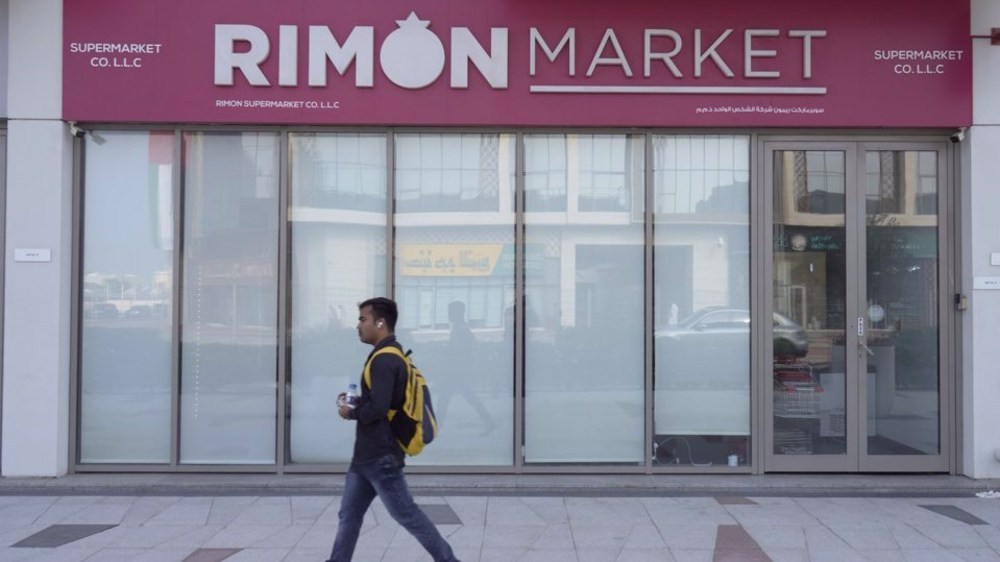Bahraini opposition groups urge boycott of elections
Bahrain's dissolved opposition groups and religious scholars have boycotted Saturday's general elections in the country amid reports that the island kingdom is inching closer towards Israel.
Al-Wafaq and al-Haq made the call on Friday, asking the people to take up the measure until the elections were over on Saturday. They described the ballot as mock elections.
Bahrain's religious scholars also boycotted the polls, calling the move "legitimate and logical," Bahrain's Arabic-language Lualua television network reported.
The decision, they said, came as Manama continued to trample on the public freedom, saying participation in the elections under such circumstances would do the people disservice rather than benefiting them.
They further voiced regret that Manama's violence, repression of freedoms, and ostracism of the people had worsened.
"The Parliament has turned into a tool for the implementation of oppressive policies, and ignorance of the people's demands as well as political and civil rights," the scholars added in their statement.
They said they would only attend the elections if the regime took "honest" steps towards forming a legislature based on the national will as well as the respect for and trust in the people.
The ruling monarchy has been leading a deadly crackdown against peaceful popular protests since 2011, killing scores of people, jailing hundreds of others, and annulling the country's opposition groupings.
Separately, a television report said Israeli Prime Minister Benjamin Netanyahu was to travel to the island kingdom in the near future.
Hani Marzuq, spokesman for the Israeli television channel MAKAN 33, made the remarks at Knesset (Israeli Parliament), the channel reported on Friday.
He alleged that the trip would be a "great step in a new [evolving] Middle East, and a starting point for fresh relations aimed at correction of the course of the history."
Leaks obtained by WikiLeaks have shown that senior officials from Israel and Bahrain have spoken in recent years. They cited a 2007 meeting between then Israeli foreign minister Tzipi Livni and her Bahraini counterpart Khalid bin Ahmed Al Khalifa in New York.
Last December, The Times of Israel reported that a Bahraini delegation had arrived in Israel with "a message of peace to the whole world" from the country's king.
Four months before, Israeli media said Bahrain's King Hamad bin Isa Al Khalifah had called at an event hosted by pro-Israeli group Simon Wiesenthal Center in Los Angeles for an end to the Arab boycott of Israel, and the establishment of diplomatic ties with Tel Aviv.
Netanyahu's office, however, issued a statement, rejecting that such a trip was to take place.
'Expansive future ties'
Israel, Marzuq said, was seeking to establish "expansive" scientific and academic relations with the Arab world.
He reminded that many Israeli ministers had visited regional Arab countries, alongside prominent Israeli economic figures and students.
Back-to-back official remarks and media reports have shown that Israel and Arab states, at the head of them Saudi Arabia, have been increasingly gravitating towards one another over the past many years. This is while those were the very states that previously depicted themselves as Tel Aviv’s enemies and supporters of the Palestinian cause.
Also last year, Netanyahu admitted that his regime had ties with the Arab world, and that their relations were improving, while Israeli Energy Minister Yuval Steinitz acknowledged in historical comments that Tel Aviv had had covert contacts with Saudi Arabia.
The news about the potential visit as the latest instance of the expanding relations came amid increasing pressure on both Israel and the Arab states to rectify their human rights records.
Also on Friday, MAKAN 33 said the Israeli Supreme Court had issued eviction orders for as many as 700 Palestinian residents from the predominantly-Palestinian Silwan neighborhood east of the occupied holy city of Jerusalem al-Quds.
Three days earlier, the court had thrown out appeals against the evictions by 104 of the Palestinians.
The decree has transferred the ownership of the Palestinians' properties to the Israeli Zionist organization of Ateret Cohanim. The organization which tries to increase the Israeli population in the Old City of al-Quds and among the Arab neighborhoods of East al-Quds is now allowed to force the Palestinians from their homes.
‘All wars have rules. All of those rules have been broken’ by Israel
VIDEO | Report flags India’s violation of rights of Rohingya detainees
Turkey's foreign minister meets Syria's de facto leader in Damascus
'Next to impossible' to rescue patients from Gaza's Kamal Adwan Hospital: Director
VIDEO | Vietnam current prosperity
Report blames gasoil exports for shortage at Iranian power plants
VIDEO | Hind Rajab Foundation names Israeli war criminals vacationing after Gaza genocide
VIDEO | Australians rally for Gaza ahead of Christmas festivities














 This makes it easy to access the Press TV website
This makes it easy to access the Press TV website